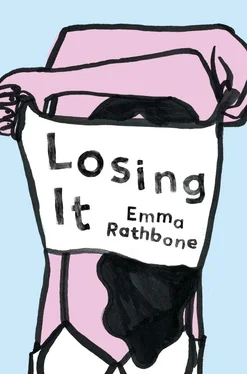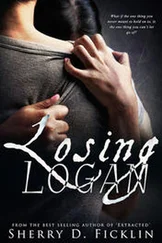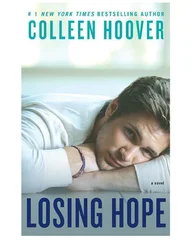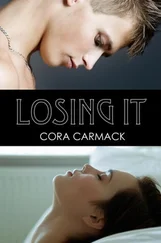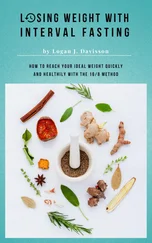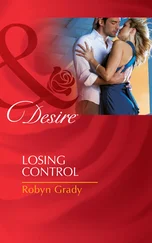My mom sighed. “It’s hard to explain.” There was a raggedy, tired edge to her voice now.
“Yeah,” I said.
“When you first get married, you have all these expectations. When I first met your father — and this isn’t his fault, it’s my fault.” She seemed unsure of how to go on. “I don’t think I’ve ever told you this, but the first time I saw him was at a party at the Sedleckies’. Remember them? It was in their living room. They had this great fire going, and I’d never been to a place like that. Doug was standing there, with a drink, wearing his glasses. He looked so at home in that environment. He looked at me, and then maybe it was the alcohol, but he suggested everyone go outside and play horseshoes. And I thought — I’m not sure if this will make any sense — that that’s how it was always going to be. ”
“I’m not sure I understand.”
“You make these implicit promises,” she said. “You don’t say them out loud.”
“But it’s been thirty years, Mom.”
“I know,” she said. “And it hasn’t necessarily been a bad thirty years.”
We were quiet for a few moments. I thought of our house in Texas. It had pink carpeting and there was a saddle on the wall and it was decorated with cow skulls and other Western things and had a sparse, warm feeling and I wondered about this unraveling between my parents. I wondered when it had started happening.
“Remember that trip we took, when you were little, to the Smoky Mountains?”
“Not really.”
“You must have been six or seven. You could see them in the distance, as we were driving there. We pointed them out to you and said, ‘That’s where we’re going,’ and you got this look on your face — you were so excited.”
“Okay.”
“When we finally got there, you kept looking around like you were confused. You kept asking, ‘Are we in the mountains?’ and we said, ‘Yes, honey, we’re here.’”
“What are you saying?” I said, but I knew what she was talking about. I remembered — the misty blue layers in the distance, as we were driving. It was like something from a historical movie. Something that would go with sweeping music. But when we got there the ground felt as flat as it had been before. There were more trees, but the land around us, that I could see, felt more or less the same.
“Things are different sometimes, when you get there, than you expect them to be.”
I sat back down and smoothed my skirt. I looked at my feet. I looked at the ridges on my fingernails.
“How do you think he thought it was going to be with you?” I said.
“With me?” She seemed taken aback. She sighed. I stared at the light hitting a Chinese vase on a side table. “I think he thought I was going to be nurturing,” she said. “And the friends I had at the time — I tricked him, too — I think he thought I was going to be the life of the party.”
It was the first day of August and the afternoon of Alice’s funeral and reception, and the sky was a harsh, undifferentiated white. People stood around in clumps on the sloping front lawn, squinting and drinking lemonade from plastic cups and pulling at their shirts.
The service had been held at a stuffy Unitarian church in the middle of town, with a minister droning, and the sound of hammering wafting in from construction taking place across the street. A picture of Alice, blown up and on a pedestal, showed her in her younger days at a youth camp, standing in a muddy corral, her arms around a bunch of teenagers wearing bright-neon-green T-shirts, a horse in the background.
I wasn’t quite sure what to say to Aunt Viv that morning as we got into the car. She appeared to be holding it together pretty well, except for now and then she would seem, her eyes welling, momentarily helpless. “Here,” I said, as we sat down, and I took an old coffee cup out of the holder between the seats. I’d left it there when I borrowed Viv’s car the other day. I dashed inside to throw it away. I felt like I needed to give her a minute and some sort of act of attention and small generosity to show what I couldn’t say, and when I got back, she had her hands on the steering wheel and was staring grimly ahead.
She was wearing a black dress with a too-small embroidered vest of the kind a mariachi singer might wear. It was boxy at the shoulders and the sleeves came to just below her elbows. I wanted to go back to earlier that morning and interfere with whatever reasoning had caused her to fish it out of whatever plastic storage bag it had been in. Especially because she was obviously too hot — little slicks of sweat appeared in the creases of her neck.
We were both sluggish from the torpor of the funeral when we pulled up to Karen’s house. I looked out at all the people on the front lawn and the endless afternoon unrolled before me. I needed to find somewhere quiet where I could be by myself. Some kind of cool, dark study or attic room.
The house was large and old with a pretty, rambling garden. Two muscular dogs charged up the lawn and into the entrance, upsetting a few people’s paper plates. At the door, Viv was stopped by someone. I decided to go find something to drink.
Inside the atmosphere bordered on festive, with people bustling down the hallways, grouped at the stairs, suppressing laughter as their conversation turned from Alice to regular, everyday things and then back again. A little untucked kid ran by. Big-band music was playing somewhere.
I went toward the sound of clatter, and it turned out to be the kitchen. I recognized one of the women from Alice’s birthday party, the one with long gray hair, and managed to avoid her by turning toward a table with a large spread on it — meats and cheeses and crackers and a tower of fruit with cherries on the top tier. I picked up a plastic cup of white wine from a tableful of poured glasses, took a few sips, shifted my weight from one leg to the other, and that’s when I saw him.
He was blond and young, college-aged if that. A lock of his hair hung away from his forehead as he stuck a toothpick into a roll of turkey. He looked distracted and scornful, until he saw me. His face gave the impression of having been halved and then reaffixed in a slightly uneven way. Ugly and pretty at the same time, the kind of face everyone thinks only they, specifically, can see the merit in.
“The pineapple slices’ll blow your mind,” he said to me, gesturing with a toothpick. He had a warm, drippy Southern drawl.
I walked to the table. “I’m allergic,” I said. “They do this thing to my lips.”
“Uh-huh.”
“But these are good,” I said, picking up an olive and slowly pushing it into my mouth.
“I like how you just did that,” he said.
I blushed. “This is a nice old house.”
He sighed, looking around. “Yeah.”
“You from here?” I sipped my wine.
“Just home from college.” He stepped a little closer to me.
“Where?”
“Chapel Hill.”
“Let me guess,” I said. “Economics.”
“History.” He stepped even closer.
I felt a twinge of recognition. Had I seen him somewhere before? My mind was blunted by the heat and the wine, and at that point I was still aware of, a little distracted by, the people around us. A man with a cane came up to the table and rummaged through some blocks of cheese, looked at us, and left.
The blond guy reached under the table and fished an empty wine bottle out of the cooler, tilted it toward himself, all business. “You want to help me find the rest of the booze?” he said. I nodded. He walked past me and took my hand.
We went out of the kitchen and down the hallway and out the front door and onto the lawn and he was yanking me through the grass. I didn’t have much time to think about all this but I wasn’t about to stop it. Then we did a U-turn and went back into the house through the front door, past the stairs and down another hallway and then we were going down rickety wooden stairs into a dimly lit basement. “Have you been here before?” I said when we got to the bottom. “When I was a kid,” he said. Then he kissed me.
Читать дальше
Конец ознакомительного отрывка
Купить книгу
